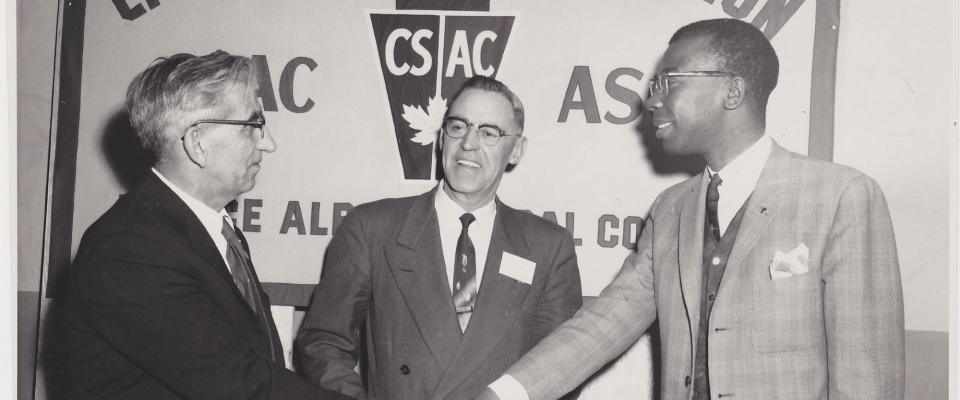The Public Service Alliance of Canada can trace its origins back to 1889 when the Railway Mail Clerks’ Association held its first convention.
Fast forward to July 9, 1966 when two organizations – the Civil Service Federation of Canada (including the Railway Mail Clerks) and the Civil Service Association of Canada – representing 16 staff associations, agreed to merge. At a founding convention in November 1966, the PSAC was born.
Political action led to the right to collective bargaining
The associations had already taken their first political steps during the April 1963 federal election by asking all political parties if they supported collective bargaining for federal workers. The PSAC’s creation coincided with the adoption of collective bargaining legislation in the federal public service.
Soon after, the PSAC signed its first collective agreements with the federal government – classification by classification – and began organizing workers in the territories and greatly expanded its education program.
Paid maternity leave and health & safety: union wins
Just over 10 years later, our union had to counteract the first of what would be many attempts to take away our collective bargaining rights. That didn’t stop the PSAC from negotiating break-through benefits such as paid maternity leave and family leave, and obtaining legal health and safety protection at work. Pay equity complaints were being filed that would result in the payment of literally billions of dollars in future decades.
In 1991, PSAC members held the largest national strike by a single union in Canada, gaining major improvements in job security while the union’s case before the Supreme Court confirmed the right of PSAC members to engage in political activity.
PSAC continues to grow
Our union continues to evolve, expanding its membership to include, among others, workers in post-secondary institutions, in territorial governments and northern municipalities and hospitals, women’s shelters, among others.
PSAC also recognizes the growing diversity of its members through committees and events that promote the human rights of our Aboriginal, racialized, LGBT, disabled and women members. And our union works to promote workers’ rights internationally through its Social Justice Fund, first set up in 2003.
 Member Login
Member Login



